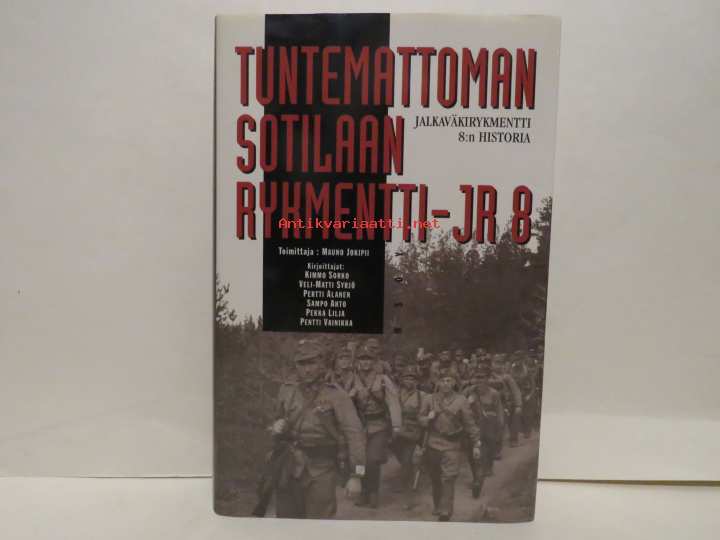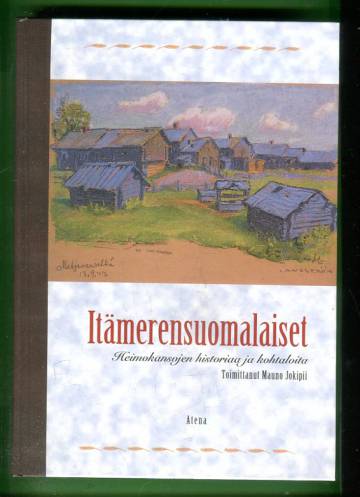


In a famous, and oft-repeated, moment, a Jewish synagogue tent operated in close proximity to Nazi lines.īut even as Finland fought the Soviets, it wrestled with the problems presented by Jewish The alliance with the Germans, combined with the fact that no Finnish Jews died during the Holocaust, has become another symbol of the resilience of the nation in the national myth, showcasing the willingness of Finland to defy a great power to protect its own people. In the Lapland War (1944-45), Finns fought the Germans. During the Continuation War (1941-44), Finland allied with Nazi Germany to fight the Soviets. First, there was the Winter War (1939-40), where the Finns fought off a Soviet invasion. World War II in Finland took place in three stages, each considered a war of its own. Anti-Semitism was relegated to the fringes. They never reached the levels of prominence and prosperity that Jews did elsewhere in Europe. These soldiers generally settled down in trades such as selling second-hand clothes, achieving a certain level of prosperity. After a 25-year term of service, the Czar allowed them to settle anywhere in the Russian empire without restriction. Jews first came to Finland as soldiers in the Russian empire. Before, the national narrative centered on Finland’s defiance of the Soviet Union in the Winter and Continuation Wars (1939-1944), with its treatment of Jews mentioned only to emphasise the exceptional irony of some Finnish Jewish soldiers receiving Nazi war crosses.Ĭonfronted with evidence of Finnish complicity in Nazi crimes, such as mistreatment of POWs, the transfer of Soviet Jews to German security forces, and the potential war crimes of Finnish members of the SS Viking division in the Ukraine, the Finnish government convened a commission of respected scholars to study the topic and produce a comprehensive report, which was then shared with the public. The questions in Finnish memory of the Holocaust are not about the fate of Finnish Jews, but rather about Finland’s treatment of refugees and prisoners of war and the actions of Finnish Nazi sympathisers during the war.įinland has been strong in recent years about confronting its marginal role in the Holocaust. Finnish authorities handed another 12 CentralĮuropean refugees to the Gestapo in Estonia and 49 Jewish Soviet Prisoners of War over to No Finnish Jews died in the Holocaust, though 61 did die in combat fighting in the FinnishĪrmy, often alongside German soldiers. The government has been commendable in its reaction to reports that Finnish SS volunt eers took part in Holocaust killings. The daily newspaper Helsingin Sanomat demonstrated in its related article that Jokipii had falsified soldier diaries in order to obscure references to atrocities.Jokipii died in Jyväskylä.Finland, though allied with Germany during the war, never handed over its Jews.Jokipii's massive work The Continuation War: An Investigation of German-Finnish Military Collaboration 1940-1941 firmly established him as a world scholar and moved the debate about German Finnish relations during World War II to a new level.In recent years the academic integrity of his work has increasingly been questioned, in particular his work on the Finnish SS battalion has been accused by younger researchers including André Swanström, Marko Tikka, and Oula Silvennoinen of politically motivated whitewashing in order to conceal war crimes committed by the battalion.This study established a new level of detail in World War II military history.He was Dean of the History-Linguistics department from 1960 to 1966.Although some of his early works had been noted, Jokipii sprung on the world scene with his 900-page study of the Finnish SS battalion in World War II.He received his doctorate in Philosophy in 1957.Jokipii attended University of Helsinki from 1952 to 1959, and began publishing almost immediately (1954).Among his works were studies of the local history of Jyväskylä and the university and historical province of Satakunta.He was a thorough investigator and a prolific author.Mauno Jokipii (21 August 1924 – 2 January 2007) was a Finnish professor at the University of Jyväskylä in history specializing in World War II.


 0 kommentar(er)
0 kommentar(er)
